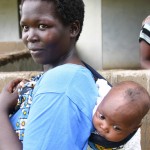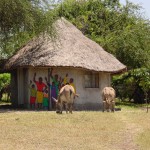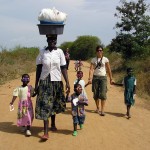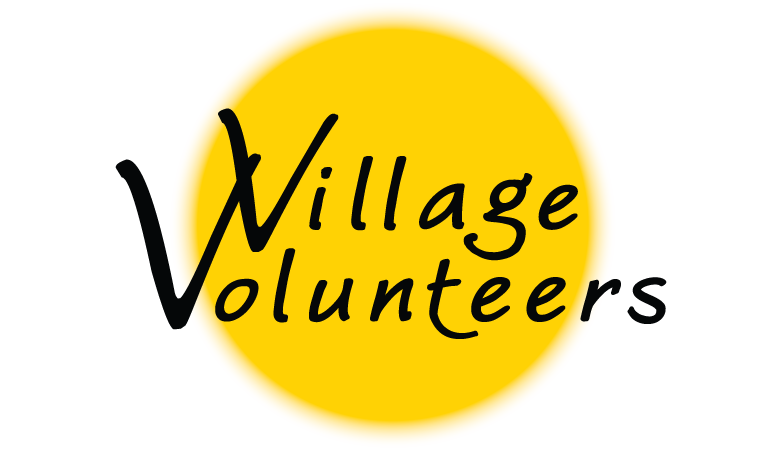Kenya: Mama na Dada
 Mama na Dada Africa empowers girls and women through education and advocacy, allowing them to gain social and financial independence, and to escape the prevalent consequences of gender discrimination. As a volunteer, you will have access to many opportunities. These opportunities include public health education, mentoring young girls, and working with women in business and economic development.
Mama na Dada Africa empowers girls and women through education and advocacy, allowing them to gain social and financial independence, and to escape the prevalent consequences of gender discrimination. As a volunteer, you will have access to many opportunities. These opportunities include public health education, mentoring young girls, and working with women in business and economic development.
We love helping volunteers find their perfect placement. Fill out our Interest Form to get started!
PROGRAM OVERVIEW
Mama na Dada is a community-based organization established in 1998 by two  African women from Kunya Village, a small rural village on the shores of Lake Victoria in the Nyanza Province of Kenya. “Mama na Dada” is Swahili for “Mother and Sister.” Its mission is to support the empowerment of the African girl child through education. It works with women and girls, to achieve their highest potential as well as financial independence.
African women from Kunya Village, a small rural village on the shores of Lake Victoria in the Nyanza Province of Kenya. “Mama na Dada” is Swahili for “Mother and Sister.” Its mission is to support the empowerment of the African girl child through education. It works with women and girls, to achieve their highest potential as well as financial independence.
In African communities, many girls never escape the devastating and lifelong consequences of gender discrimination that often lead to teenage pregnancy, prostitution, and homelessness. Mama na Dada’s programs focus on reproductive health, HIV/AIDS awareness and prevention, and assists girls in obtaining an education. The programs provide support to women and girls to be involved in decision making, encourage women and girls to vocalize their ideas and opinions, offer practical and emotional counseling to enable independent and fulfilled lives, and create a chain of learning and social activism so that these young women become role models as they mature.
MAMA NA DADA GOALS
- To provide information and support for young women and girls to be more involved in decision-making and to have their voices heard.
- To offer appropriate practical and emotional assistance so individuals can live
 independently, make informed choices, and actively participate in life within the community.
independently, make informed choices, and actively participate in life within the community. - To create a chain of learning, social activism, and change so that as young women mature, they impart skills they have learned to other girls through outreach, modeling, and peer education.
Education/Children:
- Work with girl child forums where girls learn life skills, decision making communication skills, sexual health, and self-esteem building.
- Work with children in a day care
- Work with adult women to improve literacy
Medical:
- Provide home-based medical care and outreach
- Provide one-on-one counseling
- Work in medical clinic
Public Health:
- Increase awareness of health, nutrition, and HIV/AIDS
- Design and implement methods for water collection and filtration, irrigation, solar energy, and other appropriate technology systems.
- Document stories from HIV/AIDS patients to capture and preserve cultural and family history for Memory Box Project
- Work with the elders to document stories and songs of their tradition
- Provide knowledge of solar food dehydrators, solar ovens, water filters, etc.
Business and Micro Enterprise Development:
- Facilitate entrepreneurial efforts and sustainable income-generating training and projects.
- Work with community members to develop improved agricultural and animal husbandry methods
General:
- Participate in traditional arts and crafts
- Document village life and activities via photography and video
ACCOMMODATIONS AT MAMA NA DADA
Housing
Volunteers are housed in 1 of 3 double-occupancy huts located on the grounds of Mama na Dada. Linens and mosquito nets are provided for each bed. There is a bathing area and a flush toilet in each hut.
Meals
Meals are prepared by the cook and served during posted meal times.
Drinking Water
Volunteers are provided with boiled and filtered water.
Electricity
There is electricity.
Internet Access
Volunteers can access the internet close by, but it is erratic service. The Internet in Kisumu is more reliable and is approximately 1.5 hours away.
Laundry
Laundry can be done for volunteers for a fee. Rates are posted in the huts. All volunteers are asked to launder their own undergarments.
MEET THE DIRECTOR OF MAMA NA DADA: JOYCE ONEKO
About Joyce Oneko’s childhood
I was born and grew up in the village, in a large family of thirteen girls and eight boys. I had a very fulfilling and happy childhood, and remember many fun-filled games, especially during harvest seasons. I remember us eating freshly harvested maize and beans, as we played together under the bright moonlit sky. We did not have much materially, but life was good!
Challenges faced by Joyce and getting an education
Because we were so many, and my father did not have a well-paying job, he was not able to send all of us to school. My mother, however, saw and felt my thirst for education, and used her incredible public relations with her church friends and relatives to make sure that I not only got an education but that I went to the best school possible. It paid off, and thanks to her encouragement and dedication, I was able to go to high school and on to university.
What inspired Joyce to do the work she is doing?
My life as a village girl inspired by current work. I have always been so intensely aware of how difficult it is for girls in the village to get any education at all. This was my starting point with Mama na Dada, to find ways of encouraging the community to enroll girls into school, and girls to stay longer in school and complete at least one cycle of education. This led to the beginning of our scholarship programs for high school and now for tertiary education.
The obstacles Joyce faced
Girls have been conditioned and socialized to believe that they are inferior, and this is more pronounced for girls living in villages. It takes years of “re-programming”, through life skills training and self-esteem building exercises, to make girls realize that they can indeed control the direction they wish their lives to take. Things like monetary or material scholarships can only succeed if enough girls are trained to know that they have choices and are given the opportunity to see the picture bigger than their villages.
What are her hopes for the future of Mama na Dada?
The main aim of Mama na Dada is to help women and girls empower themselves. When this happens, the communities in which they live are automatically enriched. Mama na Dada has been carrying out women’s leadership training programs, to encourage women to play more leadership roles in their communities, starting from household to national level. It is working and women are participating more in community governance issues. I hope that in the next five years, the women and girls in my community will be so empowered that they can take over most, if not all, the activities run by Mama na Dada and run them on their own.
How has the partnership with Village Volunteers affected her work?
Mama na Dada relies solely on volunteers, both national and international, as it is not funded by any corporation or agency. The monetary contributions from Village Volunteers have been of immense help, especially in the feeding program for our Circle of Hope Day Care children. The volunteers that have been sent from VV have contributed greatly to our workforce, ranging from teaching, working in the community clinic and working with children.
How the community benefits from having volunteers?
We believe that cultural exchange enriches and expands our world view. Our volunteers work very closely with community members, and this has given, not only the volunteers but the community members, an opportunity to learn a different culture. As one of our Community Health Workers said: “Since the volunteers started coming to Kunya almost six years ago, I feel as if I went back to school because I have had such a good opportunity to practice my English, which I have not used since I got married over twenty years ago”.
